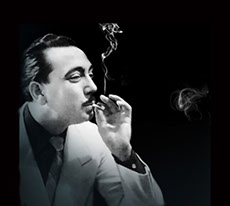
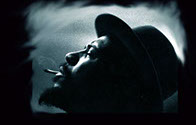
What's a
DjangoSphere???
DjangoSphere is a project, led by veteran jazz violinist Kit Eakle, in tribute to Thelonious Sphere Monk, and "Django" Jean Reinhardt.
Django and Monk are perhaps the most individual and original voices in mid-20th century Jazz. Kit Eakle's first incarnation of this group recorded DjangoSphere in 2014 with Mark Holzinger, guitar, Alex Baum, bass, and John Waller, percussion. DjangoSphere plays from the repertoire of both Django and Monk and also includes originals by all band members in the spirit of those two great and original Masters.
The group also may include a pianist and/or 'cellist. Since violinist Eakle currently spends equal amounts of time in The San Francisco Bay Area, where he directs the international Jazz Violin concert series,
Point Richmond Jazz, and Vancouver, the personnel may vary. but LATELY he has been working with guitar legend, Howard Alden on this exciting project.
In Vancouver he also performs either with John Stetch, Miles Black, or Michael Creber on piano, and James Meger, Graham Clarke, Jody Proznick, or Rene Worst on bass, Michael Dunn, or Don Ogilvie on guitar. In San Francisco, Eakle performs with Mark Holzinger or Dave Bell on guitar, John Burr on piano, Lewis Patzner on 'cello, Kendrick Freeman, John Waller, Jack Dorsey on percussion, and either Ruth Davies, Alex Baum or Karen Cullen on bass.
Eakle has recently finished working on a recording of his DjangoSphere project, with the great jazz guitarist, Howard Alden, but whatever combination of musicians the DjangoSphere sound is wrapped in the unique violin sound of Kit Eakle and his Ultra-Light violin.
And ALWAYS, the music derives from a deep appreciation of Django and Monk. Read on to discover the connection between these two jazz composers around which Eakle has built this project!
"What would have happened if legendary Gypsy jazz guitarist Django Reinhardt wandered into Minton’s Playhouse during his only tour of the US in 1946 and jammed with pianist/composer Thelonious Monk at the Harlem nightspot that served as an essential forum for the birth of modern jazz? The resulting encounter might have sounded something like what jazz violinist Kit Eakle delivers on DjangoSphere, a rhythmically dexterous rollercoaster ride that artfully melds the sounds of two irreducibly brilliant artists."
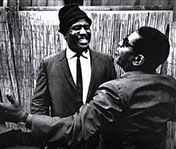
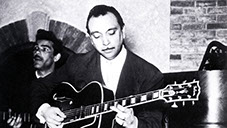
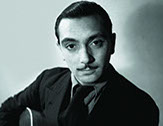
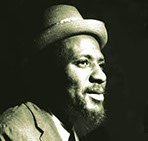
Andrew Gilbert - noted jazz and world music reviewer for the San Jose Times, Contra Costa Times, KQED
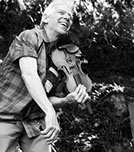
Django Reinhardt was the first European to truly 'get' jazz. In the process of adapting jazz to the guitar and his Gypsy ethnic and cultural background, he developed what has become a new genre of jazz, often labelled,"Gypsy Jazz."
Monk was the quintessential modern jazz genius, but his work had great influence on Django, and Django also clearly influenced Monk.
However, as a result of Django's music becoming the inspiration for the new style, now called "Gypsy Jazz," his contribution to jazz as a whole has been less well documented. Very few 'modern jazz' non-string players are aware of his oeuvre or his contribution to the development of bebop and modern jazz, and his music is often thought of only in relation to the 3 guitar rhythm section and violin lines of his and Stephane Grappelli's 'Quintet of the Hot Club of France.' However, to our ears, Django's later music using bebop vocabulary and a standard drums, bass, piano and sax or clarinet ensemble, is at least as important a contribution to 20th century music as his development of Gypsy Jazz. By breaking away from the guitar based rhythm section with no drums, Django's later music is capable of adapting to and expanding the vocabulary of modern jazz.
Juxtaposing the music of Thelonious Monk with that of Django helps make the contributions they made to all of jazz clearer. Both composers were completely unique, but have similarities in their use of parellel and chromatic harmony, their highly individual and original approaches to their instrument, and their experimental and idiosyncratic use of unusual forms in their music. Bringing their unique styles together both expands the stylistic possibilities of their compositions, and opens their vocabularies to new interpretations and possibilities for the voices of gypsy jazz violinists and guitarists, and gives to pianists and horn players a whole new jazz repertoire to explore.